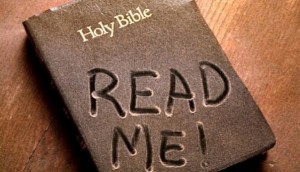The Bible In A Year
I Chronicles through Nehemiah – week 5 of 5
December 10-15, 2018
Readings for the Week
Theme of the week: As the Israelites exiles have returned and are working to rebuild their nation they swear to do better at keeping all the laws of the covenant. This week we begin with a sampling of some of the laws.
Monday-Deuteronomy chapters 11, 12 & 13
Tuesday-Deuteronomy chapters 14, 15, 19 & 20
Wednesday-Deuteronomy Chapters 21, 22, & 23
Thursday -Nehemiah chapter 10, 11, 12 & 13
Friday -1 Chronicles chapters 1, 2, 3 & 4
Saturday -1 Chronicles chapters 5, 6, 7, 8 & 9:1-34
The Bible In A Year
I Chronicles through Nehemiah – week 5 of 5
A Framework for Understanding
Midrash
There have probably been several times in the weeks of reading scripture when you have thought to yourself, “What does this scripture mean?”
Enter any Christian seminary library and you will find shelf after shelf of commentaries on scriptures. These commentaries seek to interpret the words of our ancient scripture for modern readers. Looking through these commentaries with a single scripture passage in mind, one can easily find differing interpretations.
In Judaism an official interpretation has been developed. “Midrash” is interpreting scripture. Midrash halakhah interprets scripture containing laws, and midrash aggadah interprets everything else.
Midrash halakhah seeks to define the full meaning of the law. Humans are good at looking for loopholes. This form of midrash expands the words of scriptures to reduce what appear to be ambiguities. It includes both the written law reportedly given to Moses at Mt. Sinai as recorded in Torah, and the oral law, which consists of expansion of the written laws and the addition of established customs. Orthodox Judaism adheres closely to established midrash halakhah, while Progressive Judaism has adapted it to modern life.
Midrash aggadah seeks to derive a moral principle, lesson or theological understanding from the passage. It is rabbinic teaching which amplifies everything in the Jewish bible that is not law. It consists of stories, homilies, parables, allegories, prayers, laments and more. Traditionally it does not carry the same weigh of authority as does midrash halakhah.
